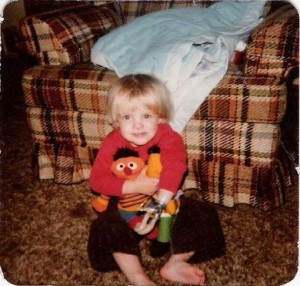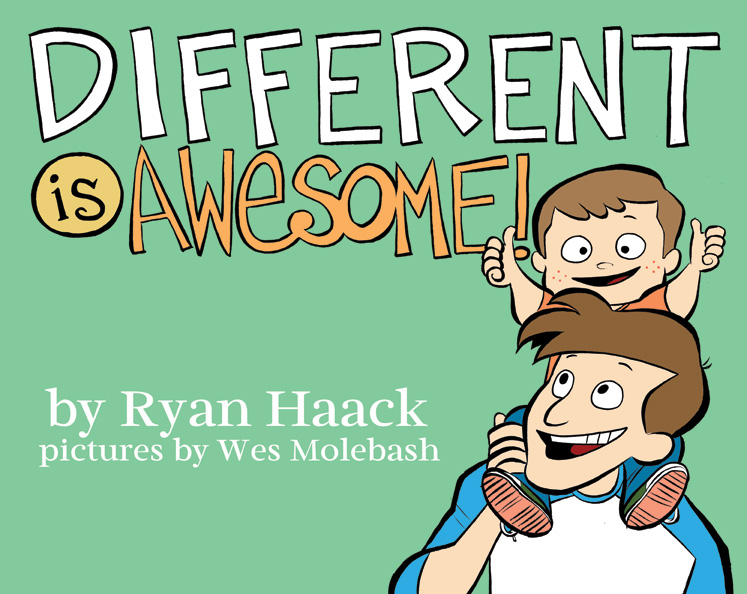Perhaps you saw the recent story about Eli Pierre being denied a job at Starbucks because he has one arm.
Obviously, the situation caught my attention.
As I’ve written before, I’m pretty lenient when it comes to peoples’ reactions to me; including their stares. But, I think it’s safe to say that I would have handled this situation, uh, considerably more undignified than Eli did. Things would have been thrown. Names would have been called.
I hesitate, though, to be angry with Starbucks as a whole. It sounds like the onus here is smack dab on the hiring manager. It amazes me that this thought process actually exists. And I use the word “process” loosely.
I also have a deeper connection to the story because 11 years ago I was a barista at Starbucks. This was before everything was automated, too. I ground the beans and loaded the hoppers and tamped and pulled shots and pumped syrup…I did it all, baby. And I was good at it. My manager, the guy who hired me, was a big, bald, hilarious gay guy with a sun tattoo on his calf. He did not discriminate against me, nor did Starbucks against him. I enjoyed my co-workers and recall my time there fondly.
Remembering my stint at Starbucks got me thinking about the other jobs I’ve had over the years. I had to laugh at the irony of some of them. My first job was at ACE Hardware. I carried bags of softener salt, cut keys and glass, bagged nuts and bolts and countless other manual tasks. I also worked at Eddie Bauer in the Mall of America for a while where I had to fold clothes every shift. Then there was the job I had processing donations for a non-profit. I opened envelopes, sorted papers and entered data into a computer every day. There was also the time I worked at a shoe store, carrying and stacking boxes and tying shoes for customers. Oh, and I went to school for radio and then worked at a station for a while where I spliced tape, ran the board for various programs and performed on-air while producing.
As you can see, there was a lot of room in each of those jobs for me to feel like I couldn’t do things with only one hand. And a lot of opportunity for other people to think I couldn’t. Very rarely, though, was my arm ever brought-up. In fact, the only times I can remember were when I worked at the hardware store and my concerned boss just wanted to make sure I was ok. Other than that, it was smooth sailing.
That’s why Eli’s story boggles my mind. As I’m sure it boggled his while it was happening. The closest I came to something like this was when I was being helped by the Department of Vocational Rehabilitation and my counselor suggested I get a prosthetic arm, “just for aesthetic reasons. You know, to help in interviews and that sort of thing.” I was furious. I told him that if someone didn’t want to hire me because of my arm, besides being illegal, it was their loss. And I wouldn’t want to work for them anyway. He seemed satisfied with that answer. Not like he had a choice.
And as bad as that was, it’s a far cry from what Eli experienced.
So, what do we learn from this? We learn that ignorance, bigotry, and insensitivity are alive and well. If you’re black, asian, short, tall, blind, deaf, wheelchair bound, limb-different, speak with a lisp…basically, if you’re different in any noticeable way, you are already familiar with this fact.
I do believe, though, that this is the exception and not the rule. I believe whole-heartedly that most people desire to treat others with respect and dignity. Even when they are unsure of how to react to someone who is different, I believe the majority are trying their best to do the right thing. To look those who are different in the eye, to not stare, to ask questions respectfully, to accept.
And when those of us who are different encounter the person who hasn’t come around yet, like Eli did, we have a choice. We can let it beat us and bruise us. We can let it send us into a tailspin. We can let it harden our heart. We can allow it to shape our thinking about everyone.
Or, we can bring it to the light. We can use it to educate and illuminate. We can become stronger by pushing through it. We can stand-up for those who are different and invite those who aren’t to do the same.
We can overcome.


















